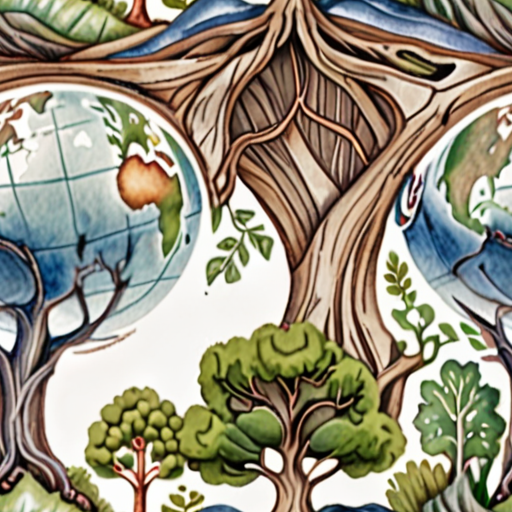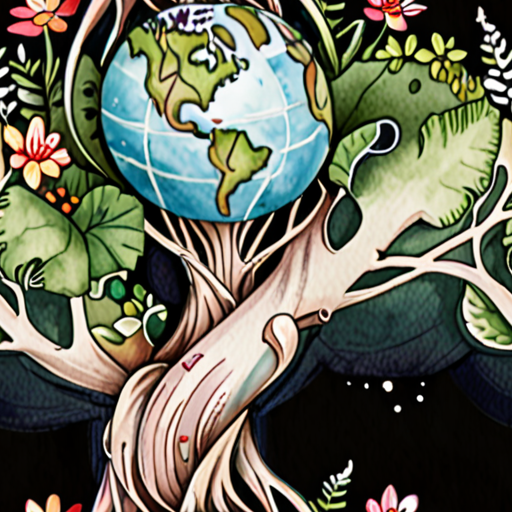As humans, we’re wired to connect with others, share experiences, and form lasting bonds – and what better way to do so than through the universal language of travel? Cultural connection through travel has long been a powerful catalyst for personal growth, cross-cultural understanding, and global unity.

Cultural Exchange through Travel
Cultural exchange is a two-way street where both travelers and locals have the opportunity to learn from each other.
- Travelers gain a deeper understanding of the local culture, traditions, and way of life.
- Locals get to share their knowledge and learn about other cultures.
At Bending Borders, we believe that cultural exchange is essential for bridging cultural divides and fostering global understanding.
- We offer a platform for travelers to share their stories and experiences, highlighting unique destinations and cultural insights.
- Our blog posts and storytelling initiatives aim to educate and inspire readers to explore the world from diverse perspectives.
- We collaborate with fellow cultural exploration platforms, such as Culture Trip and Hostelworld Blog , to showcase the richness of global cultures.
- By promoting cross-cultural understanding and exchange, we hope to inspire a new generation of travelers who appreciate the beauty of diversity.
Cultural exchange is not limited to tourism alone; it can take many forms, including:
- Language exchange programs
- Cultural festivals and events
- Volunteer work and community service
- Homestays and cultural immersion programs
These opportunities allow individuals to engage with local communities, learn about their customs and traditions, and share their own cultural heritage.
The Benefits of Cultural Exchange
Cultural exchange offers numerous benefits, including:
- Improved communication skills
- Increased empathy and understanding
- Broadened perspectives and worldview
- Enhanced creativity and innovation
By embracing cultural exchange, we can build bridges between nations and foster a more harmonious and interconnected world.
Getting Started with Cultural Exchange
If you’re interested in exploring cultural exchange opportunities, start by:
- Researching cultural festivals and events in your area
- Looking into language exchange programs or homestays
- Volunteering for community service projects
- Joining online forums or social media groups focused on cultural exchange
Remember, cultural exchange is a two-way street – be open-minded, respectful, and willing to learn from others, and you’ll find that the rewards are immeasurable.
Learning Culture by Traveling
We believe that immersing yourself in foreign cultures is one of the most effective ways to broaden your perspective and foster empathy.
- Before embarking on your journey, take some time to research the local customs, history, and traditions of your destination.
- Engage with the locals by striking up conversations, asking questions, and showing genuine interest in their daily lives.
- Indulge in local cuisine, visit markets, and try street food to get a taste of the authentic flavors and aromas of the region.
- Attend local festivals and events to experience the vibrant energy and community spirit firsthand.
- Make an effort to learn a few basic phrases in the local language, which will not only impress the locals but also enhance your overall travel experience.
- Visit local museums and historical sites to gain a deeper understanding of the region’s rich heritage and cultural significance.
- Consider staying with local families or participating in homestay programs to truly immerse yourself in the local way of life.
At Bending Borders , we’re passionate about sharing our own travel stories and cultural insights with you, and we hope to inspire you to explore the world with an open heart and mind.
Some of our favorite cultural exploration platforms include Culture Trip and Intrepid Travel , who offer valuable resources and expert advice for navigating unfamiliar territories.
Remember, the key to truly experiencing a foreign culture is to approach it with humility, curiosity, and respect – and to always keep an open mind and heart.

What Is Cultural Sensitivity When Traveling?
Being a culturally sensitive traveler means being aware of and respecting local customs, traditions, and values when exploring foreign lands. It involves understanding that cultural differences can lead to misunderstandings and unintentionally offending locals, which can negatively impact your travel experience and the communities you visit.
Key Components of Cultural Sensitivity
- Dress modestly and respect local dress codes.
- Learn basic phrases in the local language, such as greetings and thank-you expressions.
- Be mindful of local customs and traditions, especially during festivals and holidays.
- Respect local norms around food, drink, and social interactions.
- Avoid making assumptions or stereotypes based on cultural differences.
Benefits of Being a Culturally Sensitive Traveler
- Enhance your travel experience by immersing yourself in local cultures.
- Become a more empathetic and open-minded individual.
- Develop meaningful connections with locals and fellow travelers.
- Support sustainable tourism and contribute to the local economy.
- Gain a deeper appreciation for cultural diversity and exchange.
Practical Tips for Culturally Sensitive Travel
- Research local customs and traditions before arriving at your destination.
- Ask questions and seek guidance from locals, tour guides, or expats.
- Be respectful of local spaces, such as temples, mosques, or churches.
- Participate in local activities and events, but do so respectfully and with consideration.
- Share your own cultural experiences and traditions with locals, fostering cross-cultural understanding.
Cultivating Cultural Awareness through Storytelling
At Bending Borders, we believe that storytelling plays a vital role in promoting cultural awareness and empathy. By sharing personal anecdotes and experiences, we can break down cultural barriers and foster greater understanding between individuals from diverse backgrounds.
Embracing Cultural Diversity and Exchange
Cultural sensitivity is not just about avoiding mistakes; it’s about embracing cultural diversity and exchange. By being open-minded and receptive to new experiences, we can gain a deeper appreciation for the complexities and richness of human culture.

What is the Meaning of Cultural Travel?
Cultural travel is a type of travel that focuses on immersing oneself in a foreign culture, rather than simply visiting tourist attractions.
- As a cultural traveler, I leave my comfort zone behind and bring only myself and a willingness to learn about the local customs, traditions, and ways of life.
- I believe that cultural travel is not just about seeing new sights, but also about experiencing the daily lives of people in a foreign country.
- This can involve staying with local families, participating in traditional festivals, trying new foods, and learning a few words of the local language.
At Bending Borders, we understand the importance of cultural travel and strive to provide our readers with unique insights and perspectives on global cultures.
- We share travel stories and anecdotes from around the world, highlighting the diversity and richness of human experience.
- We also offer practical advice and tips for cultural travelers, from packing essentials to navigating unfamiliar environments.
- Our goal is to inspire readers to explore beyond their comfort zones and discover the beauty of cultural differences.
Some popular platforms for cultural travel include:
- Bending Borders, which offers a wealth of information and inspiration for cultural travelers.
- Intrepid Travel, which provides immersive cultural experiences and responsible tourism practices.
- World Nomads, which offers travel guides and resources for cultural travelers.
When traveling culturally, it’s essential to be respectful of local customs and traditions.
- Learn a few basic phrases in the local language to show respect and appreciation.
- Remove your shoes before entering temples or homes, as a sign of respect.
- Avoid public displays of affection, as they may be considered impolite in certain cultures.
By embracing cultural travel, we can broaden our horizons, challenge our assumptions, and develop a deeper understanding of the world and its many cultures.
How Does Travel Impact Culture?
As I reflect on my own travels, I’ve come to realize that immersing myself in local cultures has been one of the most rewarding aspects of exploring the world.
- I’ve had the opportunity to learn about the customs and traditions of various communities, which has helped me develop a deeper appreciation for the diversity of human experience.
- Through my interactions with locals, I’ve gained insight into the values and histories that shape these cultures, allowing me to better understand the complexities of globalization and its effects on local identities.
However, I’ve also seen firsthand how mass tourism can have a negative impact on local cultures, reducing them to mere spectacles and stripping away their authenticity.
- The commercialization of cultural heritage sites can lead to the erosion of traditional practices and the loss of cultural significance.
- Rushed tourism can also result in the exploitation of local resources and the displacement of indigenous communities.
At Bending Borders, we believe that slow travel is essential for meaningful cultural exchange.
- We encourage our readers to take the time to engage with local communities, learn about their customs, and support sustainable tourism initiatives.
- By doing so, we can work together to preserve cultural heritage and promote cross-cultural understanding.
Some of our favorite resources for learning about cultural immersion include:
- Planeterra , which offers insights into responsible travel practices and community-based tourism.
- Cultural Immersion , which provides opportunities for travelers to engage with local cultures through homestays and language programs.
Ultimately, travel has the power to transform us and broaden our perspectives, but it requires a thoughtful and respectful approach to cultural exchange.
Cultivating Cross-Cultural Understanding
As we navigate the complexities of globalization, it’s essential to recognize the importance of preserving cultural heritage and promoting cross-cultural understanding.
- We can start by supporting local artisans and small businesses, which helps to keep traditional crafts and industries alive.
- We can also engage in respectful dialogue with people from different backgrounds, listening to their stories and sharing our own.
Sustainable Tourism Practices
As travelers, we have a responsibility to minimize our impact on local environments and communities.
- We can choose eco-lodges and environmentally friendly accommodations, which reduce waste and support conservation efforts.
- We can also opt for locally owned tour operators, which invest in the local economy and promote cultural sensitivity.

Understanding Cultural Tourists
Cultural tourists can be broadly classified into five distinct categories based on their motivations and behaviors.
-
Purposeful Cultural Tourists
These individuals have a clear idea of what they want to experience during their trip and plan accordingly. They often engage in activities such as visiting historical landmarks, attending cultural events, and interacting with local communities.
-
Serendipitous Cultural Tourists
This type of tourist is open to new experiences and discoveries. They may stumble upon hidden gems or unexpected attractions during their travels, which can lead to a deeper appreciation of the local culture.
-
Sightseeing Cultural Tourists
These tourists are primarily focused on seeing famous sights and landmarks. They may take guided tours or follow self-guided itineraries to maximize their exposure to popular attractions.
-
Incidental Cultural Tourists
Incidental tourists may not have initially planned to engage in cultural activities, but circumstances led them to discover new experiences. For example, they might attend a festival or event that was not part of their original itinerary.
-
Casual Cultural Tourists
Casual tourists tend to approach cultural experiences in a relaxed manner. They may engage in low-key activities such as people-watching, trying local cuisine, or exploring neighborhoods.
At Bending Borders , we recognize the importance of understanding these different types of cultural tourists. By acknowledging their unique characteristics and preferences, we can better cater to their needs and provide them with enriching experiences that foster cross-cultural understanding and appreciation.
Conclusion
The diversity of cultural tourists underscores the complexity of cultural exchange. By embracing this diversity and tailoring our approaches to meet the needs of various types of tourists, we can promote greater empathy and cooperation among nations and cultures.

0 Comments